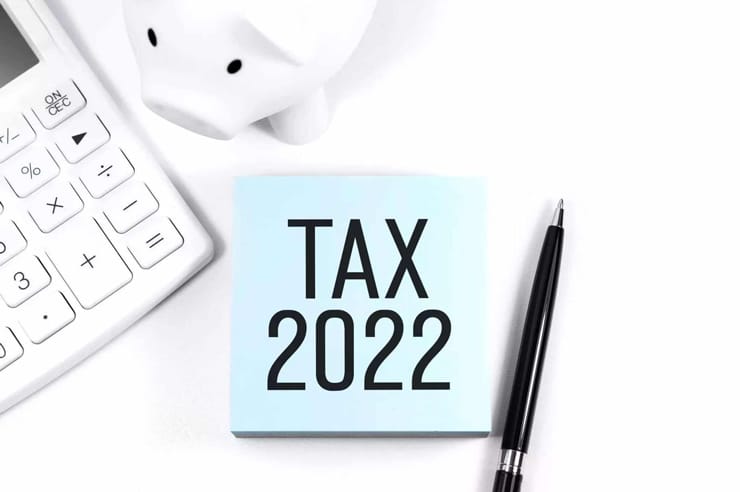2022/2023: New Tax Year Changes – How Do They Affect You?
09/04/2022 - 5 minutes readNew tax year changes took effect on 6 April 2022 and here’s a list of the biggest changes that will impact your personal finances.

National Insurance 1.25% increase
From 6 April 2022 to 5 April 2023 National Insurance contributions will increase by 1.25 percentage points. This will be spent on the NHS, health and social care in the UK.
The increase will apply to:
- – Class 1 (paid by employees)
- – Class 4 (paid by self-employed)
- – secondary Class 1, 1A and 1B (paid by employers)
The increase will not apply if you are over the State Pension age.
If you’re employed
You pay Class 1 National Insurance contributions. The rates for most people for the 2022 to 2023 tax year are:
| Your pay | Class 1 National Insurance rate |
|---|---|
| £190 to £967 a week (£823 to £4,189 a month) | 13.25% |
| Over £967 a week (£4,189 a month) | 3.25% |
Dividend Tax 1.25% increase
As part of the new tax year changes, the rates of Income Tax applicable to dividend income have increased. Previously, the ordinary rate, upper rate and additional rate are 7.5%, 32.5% and 38.1% respectively. The new tax year changes will increase each rate by 1.25% to 8.75%, 33.75% and 39.35% from April 2022.
The dividend trust rate of Income Tax was 38.1%. This will also be increased to 39.35% from April 2022 to remain in line with the additional rate.
State pension increases by 3.1%
State Pension Increase will take effect from 11th April 2022 – the basic State Pension will increase to £141.85 per week and the full rate of the new State Pension will increase to £185.15.
The actual amount you get depends on your National Insurance record.
The only reasons the amount can be higher are if:
- – you have over a certain amount of Additional State Pension
- – you defer (delay) taking your State Pension
You can get a State Pension forecast to find out how much you could get and when.
You can still get a State Pension if you have other income like a personal pension or a workplace pension.
See further details here.
Minimum wage increase
The new tax year changes from 1 April 2022 are:
| Rate | From April 2022 | Current rate (April 2021 to March 2022 | Increase |
|---|---|---|---|
| National Living Wage | £9.50 | £8.91 | 6.6% |
| 21 to 22 year old rate | £9.18 | £8.36 | 9.8% |
| 18 to 20 year old rate | £6.83 | £6.56 | 4.1% |
| 16 to 17 year old rate | £4.81 | £4.30 | 4.1% |
| Apprentice rate | £4.81 | £4.30 | 11.9% |
| Accommodation offset | £8.70 | £8.36 | 4.1% |
With the rates going up from 1 April, workers across the UK are being urged to check they are being paid properly. This can be done by visiting the Check Your Pay site, which also offers advice on what to do if you are being underpaid.
Making Tax Digital for VAT
Making Tax Digital (MTD) for VAT has become mandatory for VAT-registered businesses on 1 April 2022.
All VAT-registered businesses must use Making Tax Digital (MTD) for VAT for their first VAT return starting on or after 1 April 2022 although they will not have to pay VAT via MTD until July 2022.
Making Tax Digital (MTD) for VAT helps taxpayers get their tax returns right by reducing common mistakes as well as saving time managing their tax affairs and is a key part of the overall digitalisation of UK tax.
All VAT-registered businesses must use MTD for VAT for their first VAT return starting on or after 1 April 2022. We have covered this in further detail here.
National Insurance Threshold increase
Capping of the new tax year changes, this measure will increase the Primary Threshold (PT) for Class 1 NICs and Lower Profits Limit (LPL) for Class 4 NICs from 6 July 2022, aligning them with the personal allowance for income tax which is set at £12,570 per annum. These thresholds will remain aligned.
The rate will remain until the tax year 2025-26. From the tax year 2026-27 onwards, the PT and LPL will follow the default position of being increased in line with the Consumer Price Index (CPI). Further details are available here.
From April 2022, this measure also reduces Class 2 NICs liabilities to nil on profits between the Small Profits Threshold (SPT) and LPL. This will ensure that no one earning between the SPT and LPL will pay any Class 2 NICs, while allowing individuals to be able to continue to build up National Insurance credits.
New Tax Year changes – How can MCL Accountants help?
Contact MCL Accountants on 01702 593 029 if you have any queries on the New Tax Year changes or if you need any assistance with the preparation and submission of your business accounts or self-assessment tax returns to HMRC.
- ABOUT
- REQUEST A QUOTE
Ishan provides financial management, taxation and transactional advice to business entities of all sizes. His expert areas include statutory compliance, business taxation, personal tax & transactional processing and systems. Industry sectors include professional services, retail, hospitality and entertaining & media and advertising services.

0 Comments